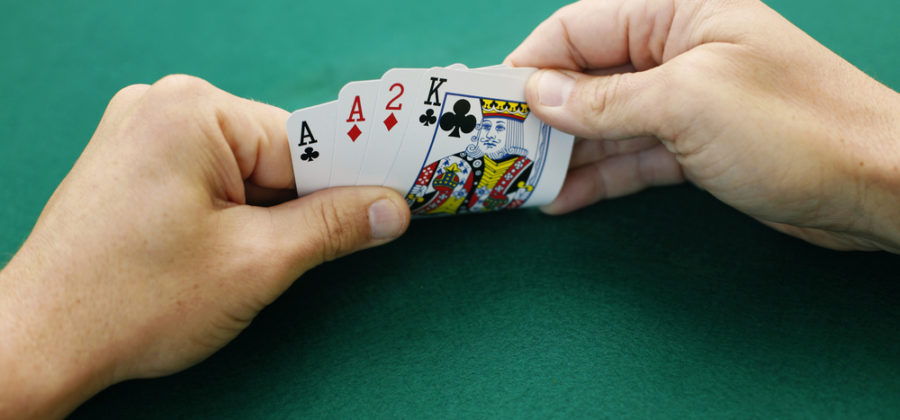If you are tired of playing Texas Hold'em and want to try something new, then it's time to learn the rules of Omaha - the second most popular poker game in the world. Omaha is also a variation of Hold'em games (poker variations with common cards for all participants), but it is more complex and dynamic, which means it is even more interesting than Texas poker.
Key principles of the game

Overall, Omaha is very similar to Texas Hold'em. The main difference is the number of individual cards face down for each player. While poker players are dealt two cards in Texas Hold'em, four in Omaha.
The beginning of each game is the definition of the dealer, the participant acting as the distributor (when playing poker online, the distribution is automatic). A special big chip called the button is put near the dealer (the name of the best poker position came from this name). Two players sitting to the left of the dealer are the small and big blind, and these participants must make mandatory bets before the start of the distribution.
Please note that before the start of each new distribution, the dealer chip passes to the player sitting on the left.

Preflop
The beginning of this stage of the game in Omaha is as follows: all participants are dealt a four-card starting hand in a closed hand. After that, the players evaluate how strong their hand is and perform actions in accordance with the strategy that they have chosen.
Of the available actions, you will have:
- A check is actually a missed move;
- Bet Bet.
- Call - calling the opponent or blind;
- Raise - increase in the rate;
- Fold - folds the hand and refuses to continue the game in the hand.
When all participants take the selected actions and either equalize their opponents' bets or play a fold, the next round of the game will begin.
Flop
As in Texas Hold'em, the first 3 community cards are dealt to the board, and all participants remaining in the game use them to form their current combination. When poker players value their current hands, the second round of betting begins.
Turn
Also, this round of the game is called fourth street. Now the penultimate, fourth community board card is being dealt, which means that poker players have even less chances to improve their hands. This stage is completed by the next round of trading.
River
The last fifth community card is dealt and the participants of the distribution can evaluate their final formed combinations. There will no longer be any opportunities to improve the hand, so the players decide whether they are ready to show up with their cards, whether it is worth trying a bluff or a better way would be to fold the hand. After the last round of trading, there remains one stage - an autopsy.
Showdown
The end of each hand is a showdown. The stage at which all remaining players in the hand show their opponents cards. Right now, the winner is determined - the one who collects the best combination of five cards and takes the entire bank.
An important nuance that should be taken into account: when forming a combination, you can use only 2 of your 4 pocket cards and 3 community table cards. Be sure to remember this rule, because if you incorrectly evaluate your hand, you can lose a large amount, so be careful.
As you can see, there are only a few key differences between Omaha and Texas Hold'em. Omaha rules are not as complicated as it might seem at first glance - a little practice and you are ready to storm cash tables.


